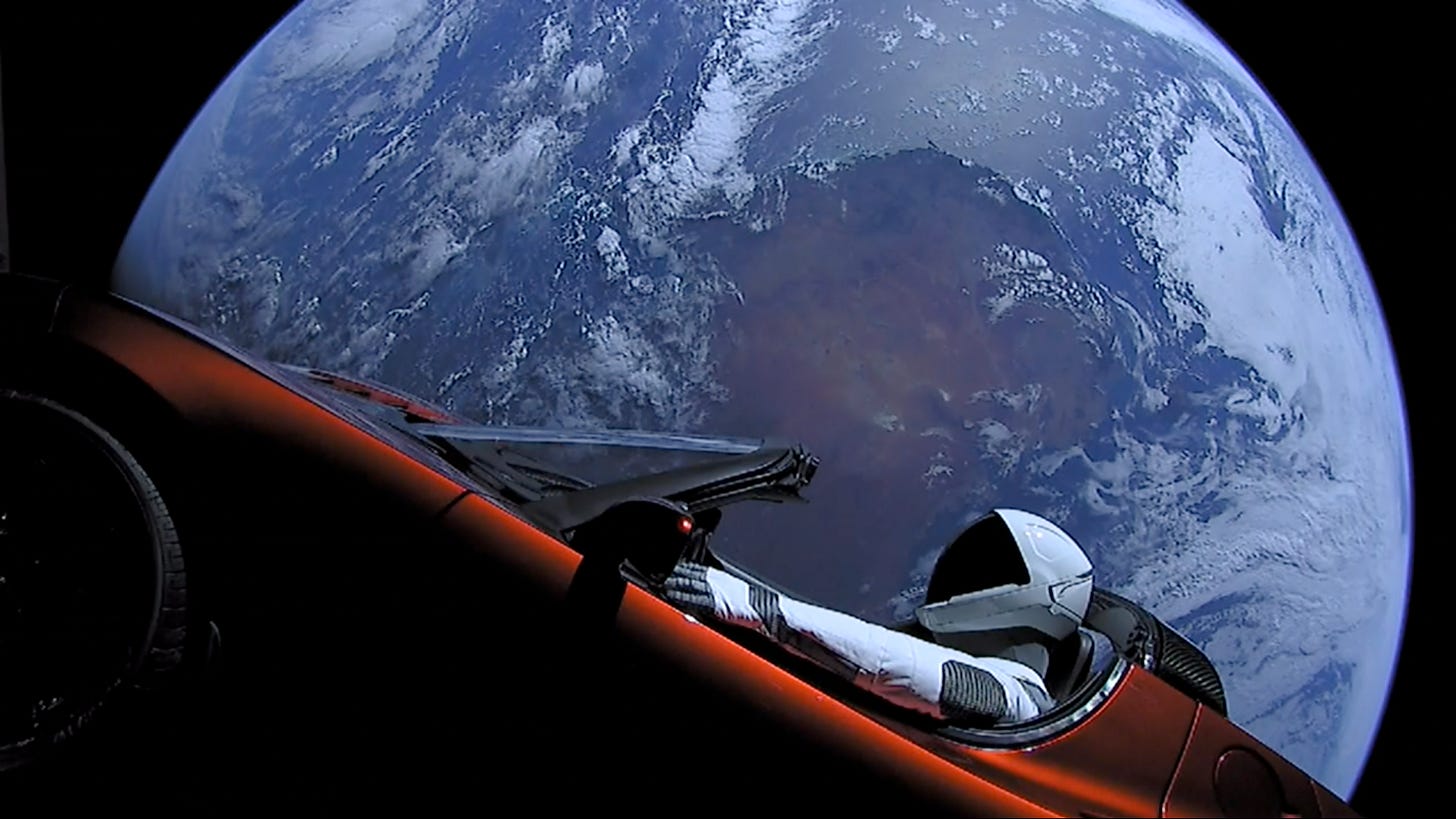Unseen Worlds
(Image: Wikipedia)Once in the west I lay down dying to see something other than the dying stars so singularly clear, so unassailably there, they made me reach for something other. - Christian Wiman
Starman floats, beyond Earth and Moon, toward Mars. Some know the unseen worlds of code that land the boosters in reverse, and propel Starman to explore. We watch the rocket fly, cheer Starman from our screens, and yards, and office windows. There are those who know the code to spin the world, Musk, Mozart, Einstein, Dickinson, Tolkien.
But isn’t it more than code that launches Starman in his Tesla past our orbit? What makes an engineer, composer, or writer reach beyond what they know? The poet John Keats might call it “Negative Capability,” being able to hold sway “in uncertainties, Mysteries, doubts, without any irritable reaching after fact & reason.” Keats might suggest that creative thinkers pursue fact and reason as far as it will take them, and then are comfortable launching beyond what is knowable. As Edwin Hubble told us, “the history of astronomy is a history of receding horizons.” Codemen are ever reaching toward the next star.
The poet Christian Wiman is a codeman, orbiting linguistic galaxies of faith to prove them, as Keats expressed, “upon our pulses.” In an essay, Wiman tells us about poet Anna Kamienska whose faith “brought her great comfort and great anguish, often at the same time.” And of poet George Herbert, just married and dying of tuberculosis who in his poem “Bitter-Sweet” wrote:
I will complain, yet praise. I will bewail, approve. And all my sour-sweet days I will lament and love.
Living for years with the death knell of cancer sounding through his veins, Wiman finds that it drives him – even in remission – into “the furthest crannies of literature and theology in search of something that will both speak and spare my own pain.”
He launches into the unknown on “the most wonderful and terrible prayer one can pray,” one Kamienska and Herbert prayed before him: “Not my will, Lord, but yours.”
In Wiman’s poem “Witness,” under “a moon-blued, cloud-strewn night sky” he feels the pull of Earth's “numinous ruins” as well as the stars’s presence, “unassailably there.” He asks his two-year-old daughter, a “storm of atoms/elliptically, electrically alive—” if she loves him. Her enigmatic expression of love
I will love you in the summertime, Daddy. I will love you … in the summertime.
seems to mirror God’s love, cloud covered as it was especially in the language of pain and suffering during Wiman’s illness.
His own uncertainties and reaching for “something other” has convinced Wiman that the way we live our lives is directly shaped by the question of faith, even if we never knowingly debated the question.
The code seems complicated, but Wiman tells us, “just as there are simple and elegant equations that emerge only at the end of what seems like a maze of complicated mathematics, so there are truths that depend upon the very contortions they untangle.”
The codemen know that sometimes Starman is launched to drift among the questions.




